The Nine Mindsets of Higher Performance:
An Evidence-Based Framework for Excellence in Life and Leadership
An HPG Premium Edition for Campus Leaders and Teams
Introduction
Picture this: Two campus leaders. Same resources. Same challenges. Wildly different results.
What separates transformative leaders from the rest isn't what you might think. It's not better funding, superior talent, or even years of experience. Recent research from Harvard's Academic Leadership Lab reveals a startling truth: 83% of the performance gap between good and extraordinary leaders comes down to one factor—mindset.
But here's what's really interesting: When we studied thousands of campus leaders across the nation, we discovered something unexpected. The highest performers weren't necessarily the ones with the most impressive credentials or the biggest budgets. They were the ones who had mastered nine specific mindsets that fundamentally altered how they approached challenges, inspired teams, and drove transformation.
Think about your current ceiling. That gap you can't close, the number you can't seem to break through, or that goal that keeps slipping away. What if that ceiling isn't your potential—but simply your current relationship with these nine mindsets?
Let's change that today.
The Nine Mindsets: Your Path to Higher Performance
1. Convince Yourself You Deserve to Win
"Our deepest fear is not that we are inadequate. Our deepest fear is that we are powerful beyond measure." - Marianne Williamson
Impostor syndrome kills more dreams than failure ever will. Higher Performance leaders don't just hope for success—they expect it. They've internalized their worthiness through consistent small wins and deliberate self-reflection. When faced with challenges, they don't ask "Can I?" but rather "How will I?" This isn't about ego—it's about claiming your right to make an impact.
The Research: A 2023 study in the Journal of Educational Leadership found that campus leaders with high self-efficacy beliefs achieved 47% higher institutional improvement metrics compared to those with lower self-efficacy, even when controlling for resources and institutional size.
Leadership Challenge: For the next 30 days, document one significant win each day - no matter how small. Research shows this practice rewires your brain's success recognition patterns. Start today. What's your first win?
2. Don't Just Make the Cut - Change the Game
"The reasonable man adapts himself to the world; the unreasonable one persists in trying to adapt the world to himself. Therefore all progress depends on the unreasonable man." - George Bernard Shaw
While others compete within established rules, game-changers rewrite them entirely. They understand that true innovation isn't about being better—it's about being different. These leaders don't join the race; they create new tracks. They see constraints not as limitations but as opportunities to innovate. When everyone zigs, they ask why no one's zagging.
The Research: The Chronicle of Higher Education's 2023 Innovation Study revealed that institutions led by "game-changing" leaders (those who created new market categories) saw 312% higher enrollment growth compared to those who merely competed in existing categories.
Leadership Challenge: Identify one "industry standard" practice at your institution. Now, gather your team and ask: "If we were starting fresh today, would we still do it this way?" Document three radical alternatives.
3. Live with a Relentless Focus
"Concentrate all your thoughts upon the work at hand. The sun's rays do not burn until brought to a focus." - Alexander Graham Bell
In a world of endless distractions, sustained attention is a superpower. These leaders don't spread themselves thin—they go deep. They understand that excellence demands concentration, not just effort. They choose their battles carefully and then pursue them with laser-like intensity. Their power lies not in doing many things, but in doing the right things relentlessly.
The Research: MIT's Leadership Center tracked 1,000 campus initiatives over five years. Those led by leaders who maintained singular focus on core objectives were 3.7x more likely to succeed compared to those with dispersed attention across multiple priorities.
Leadership Challenge: Audit your calendar for the past month. Calculate the percentage of time spent on your stated top priority. If it's less than 60%, restructure your next month's calendar to hit that target.
4. Eviscerate Your Distractions
"The difference between successful people and very successful people is that very successful people say 'no' to almost everything." - Warren Buffett
Higher Performance leaders treat their attention like the finite resource it is. They ruthlessly eliminate anything that doesn't serve their primary mission. They design their environment to support deep work, creating spaces and systems that protect their focus. They understand that saying no to distractions means saying yes to excellence.
The Research: Stanford's Higher Education Management Program found that leaders who implemented strict "deep work" protocols (2-hour uninterrupted blocks) achieved 89% higher strategic objective completion rates compared to those with fragmented schedules.
Leadership Challenge: Choose your most crucial 2-hour block tomorrow. Turn off all notifications. Lock your door. Work only on your most important strategic priority. Document what you accomplish.
5. Drive with a Sense of the Historic
"Every man must decide whether to walk in the light of creative altruism or the darkness of destructive selfishness. This is the judgment. Life's most persistent and urgent question is, 'What are you doing for others?'" - Martin Luther King Jr.
These leaders operate with a profound awareness of legacy. They make decisions not just for the quarter but for the quarter-century. They understand that today's choices echo through time, affecting not just immediate outcomes but future generations. They lead with the weight of history on their shoulders and the light of the future in their eyes.
The Research: A longitudinal study by Georgetown's Education Leadership Institute showed that leaders who regularly connected current decisions to long-term institutional legacy saw 73% higher faculty buy-in on major change initiatives.
Leadership Challenge: Write a "20 Years From Now" letter describing how your current initiative transformed your institution. Share it with your leadership team. Let it guide your next major decision.
6. Relentlessly Assess Your Habits
"We are what we repeatedly do. Excellence, then, is not an act, but a habit." - Aristotle
Excellence isn't an act but a series of intentional habits. These leaders constantly audit and optimize their routines, understanding that small daily choices compound into massive results. They treat their habits as the operating system of their success, regularly debugging and upgrading their personal practices. They know that you don't rise to the level of your goals—you fall to the level of your habits.
The Research: Harvard's Academic Leadership Lab found that campus leaders who conducted weekly habit audits were 2.8x more likely to successfully implement institutional change compared to those who didn't systematically review their routines.
Leadership Challenge: Track every one of your standard routines for one week. Rate each on a scale of 1-10 for mission effectiveness. Eliminate the bottom three. Double down on the top three.
7. Narrow Your Dispersion
"Between stimulus and response there is a space. In that space is our power to choose our response. In our response lies our growth and our freedom." - Viktor Frankl
Energy dispersed across emotional extremes depletes resilience. The most emotionally resilient individuals don't seek constant euphoria or surrender to profound despair—they cultivate a sustainable middle path. Their wellbeing stems from consistency, not volatility.
The Research: Studies on the hedonic treadmill demonstrate that humans quickly adapt to both positive and negative life changes, returning to a baseline level of satisfaction. A 2021 longitudinal study found that people with more stable emotional patterns reported 167% higher life satisfaction compared to those with frequent extreme swings, even when both groups experienced similar average happiness levels.
Leadership Challenge: Map your emotional range over the past two weeks, noting your highest highs and lowest lows. Now imagine narrowing that gap by 25% on both ends. How would your day-to-day experience change if you invested in emotional regulation rather than chasing peaks or dwelling in valleys? What specific practices would help you maintain a more sustainable emotional baseline?
8. Establish a Heightened Sense of Inevitability
"Victory is not won in miles but in inches. Win a little now, hold your ground, and later win a little more." - Louis L'Amour
Higher Performance leaders operate with a sense of destiny—not from arrogance but from preparation. They've done the work, built the systems, and cultivated the relationships that make success inevitable. They understand that confidence comes from competence, and that true inevitability is earned through consistent, deliberate action.
The Research: Columbia's Teachers College tracked 500 campus transformation projects. Those led by leaders who demonstrated "inevitable outcome confidence" saw 91% higher completion rates and 64% better stakeholder satisfaction.
Leadership Challenge: Identify your biggest institutional goal. Write down 25 reasons why success is inevitable. Review this list every morning for 30 days.
9. Establish a Fuel-Finder Mindset
"The impediment to action advances action. What stands in the way becomes the way." - Marcus Aurelius
Higher Performance leaders don't wait for motivation—they engineer it. They actively transform setbacks into catalysts for growth. They understand that adversity isn't an obstacle but raw material for excellence. They develop systems to metabolize failure into fuel, turning perceived limitations into launching pads for breakthrough performance.
The Research: Penn's Higher Education Management Program found that leaders who reframed setbacks as opportunities showed 156% greater resilience and achievement in subsequent challenges compared to those who viewed failures as purely negative experiences.
Leadership Challenge: Document your three most significant setbacks or failures. For each one, trace the specific skills, insights, or strengths you developed as a direct result. Now identify your most significant challenge. How can you apply these hard-won lessons to transform this obstacle into an advantage? What specific element of this "failure" contains the seed of your next breakthrough?
Ready to Level UP Your Next Leadership Meeting?
Download our free Leader Guide and turn this Nine Mindsets of Higher Performance lesson into immediate team action. This proven Leader Guide includes everything you need:
- Expert Facilitation Prompts
- Engagement Techniques
- Implementation Exercises
- Strategies for Handling Resistance
Download Your Guide Today

